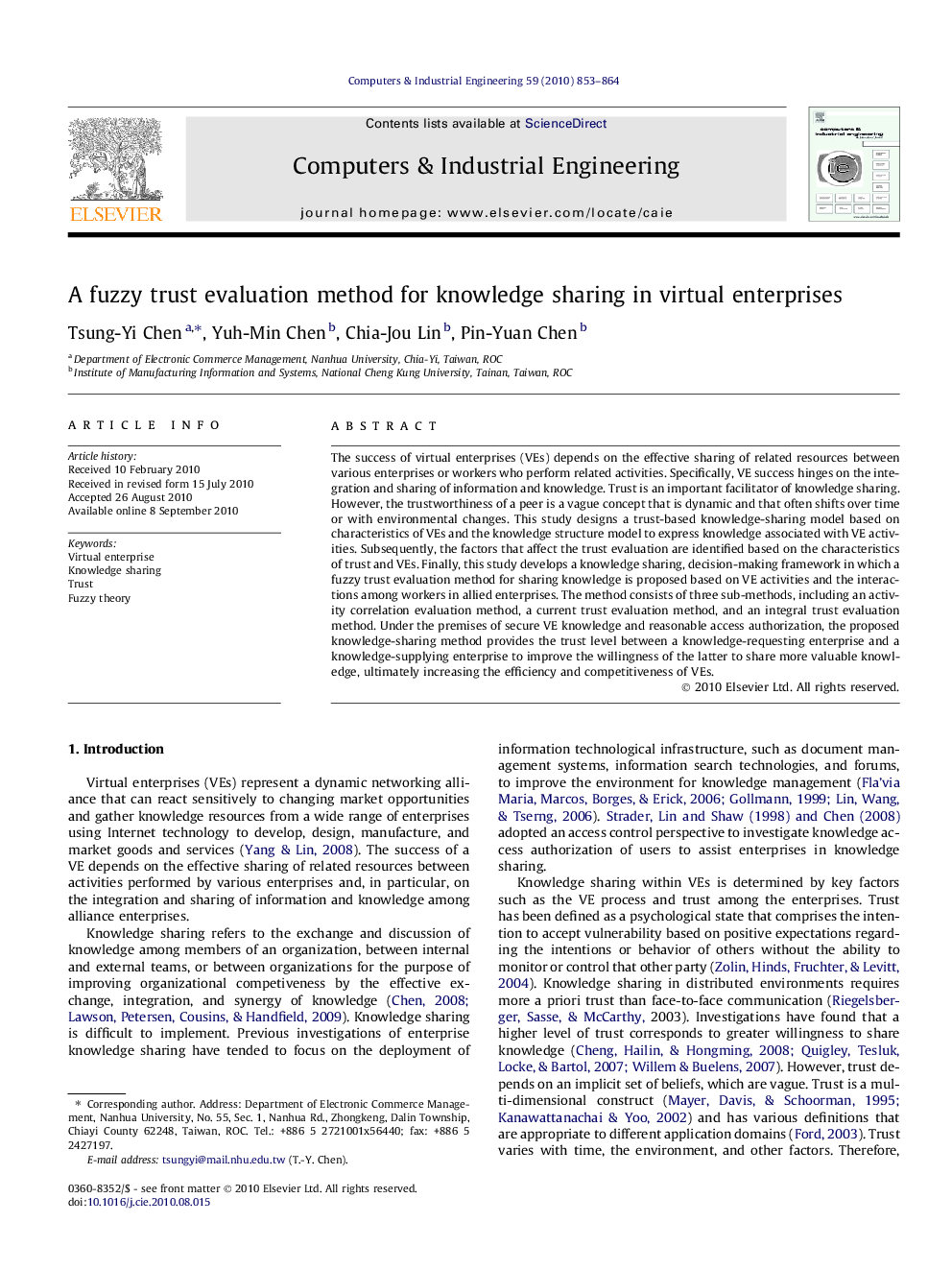| Article ID | Journal | Published Year | Pages | File Type |
|---|---|---|---|---|
| 1134737 | Computers & Industrial Engineering | 2010 | 12 Pages |
The success of virtual enterprises (VEs) depends on the effective sharing of related resources between various enterprises or workers who perform related activities. Specifically, VE success hinges on the integration and sharing of information and knowledge. Trust is an important facilitator of knowledge sharing. However, the trustworthiness of a peer is a vague concept that is dynamic and that often shifts over time or with environmental changes. This study designs a trust-based knowledge-sharing model based on characteristics of VEs and the knowledge structure model to express knowledge associated with VE activities. Subsequently, the factors that affect the trust evaluation are identified based on the characteristics of trust and VEs. Finally, this study develops a knowledge sharing, decision-making framework in which a fuzzy trust evaluation method for sharing knowledge is proposed based on VE activities and the interactions among workers in allied enterprises. The method consists of three sub-methods, including an activity correlation evaluation method, a current trust evaluation method, and an integral trust evaluation method. Under the premises of secure VE knowledge and reasonable access authorization, the proposed knowledge-sharing method provides the trust level between a knowledge-requesting enterprise and a knowledge-supplying enterprise to improve the willingness of the latter to share more valuable knowledge, ultimately increasing the efficiency and competitiveness of VEs.
